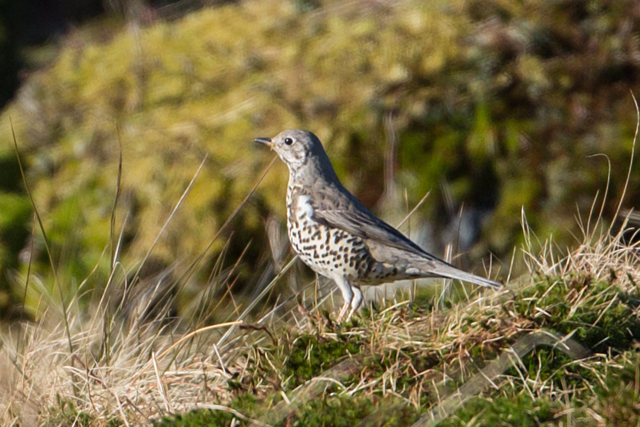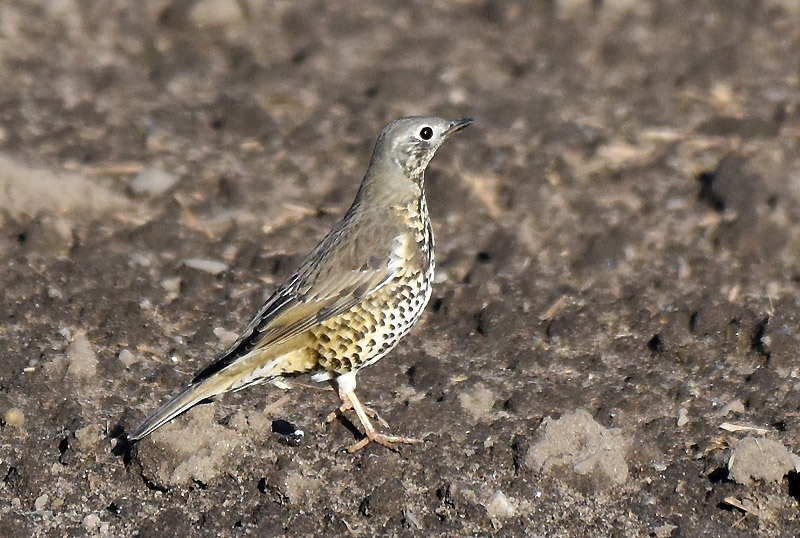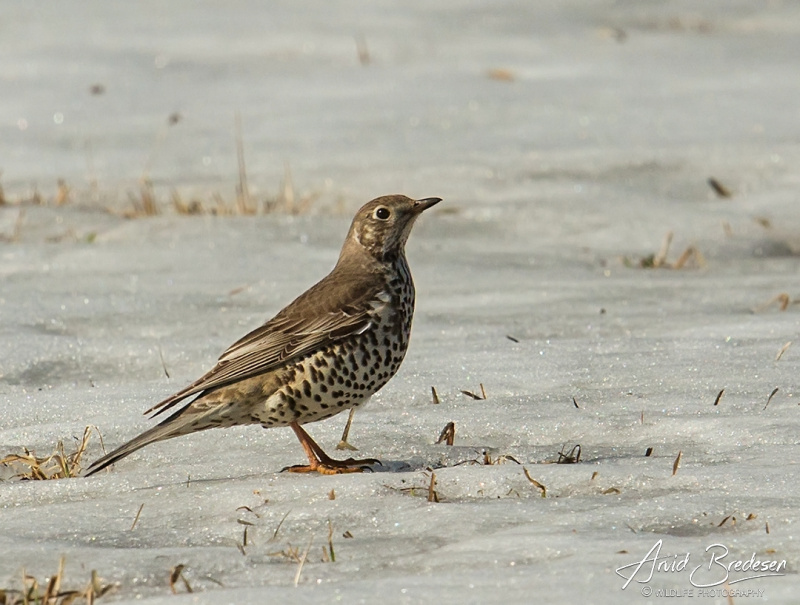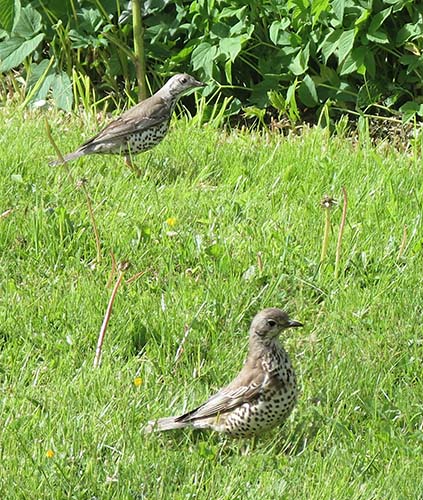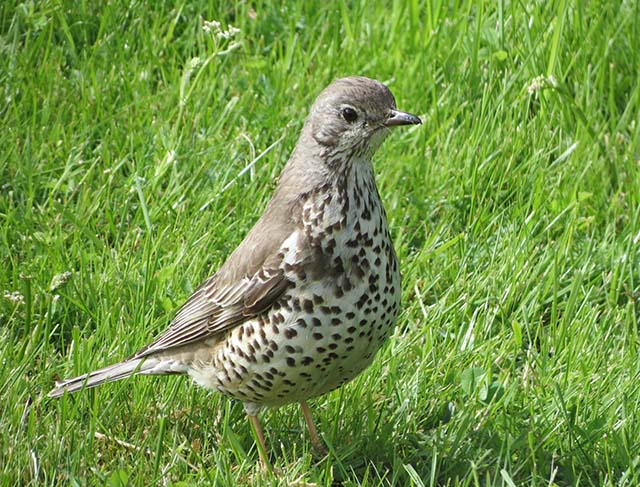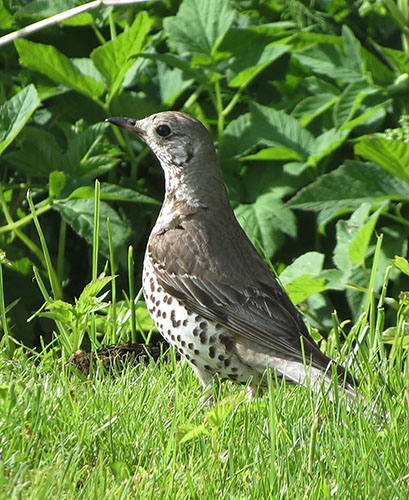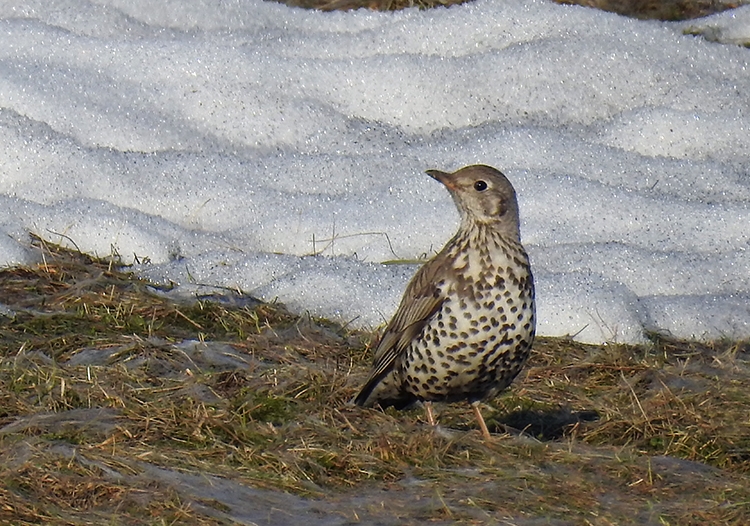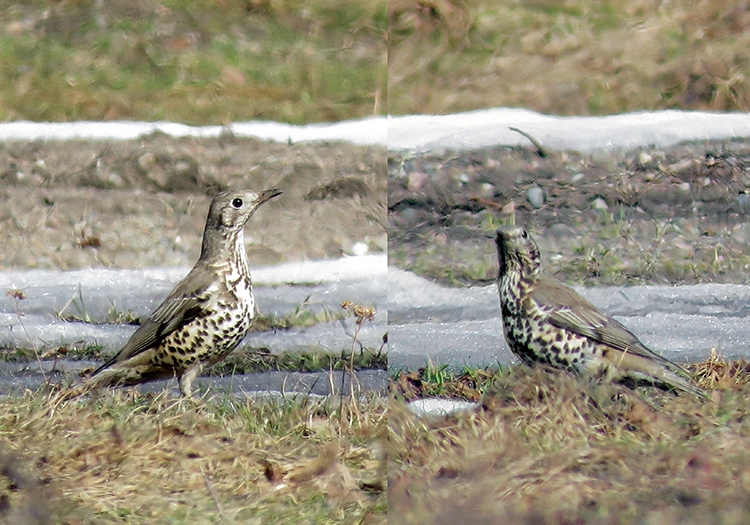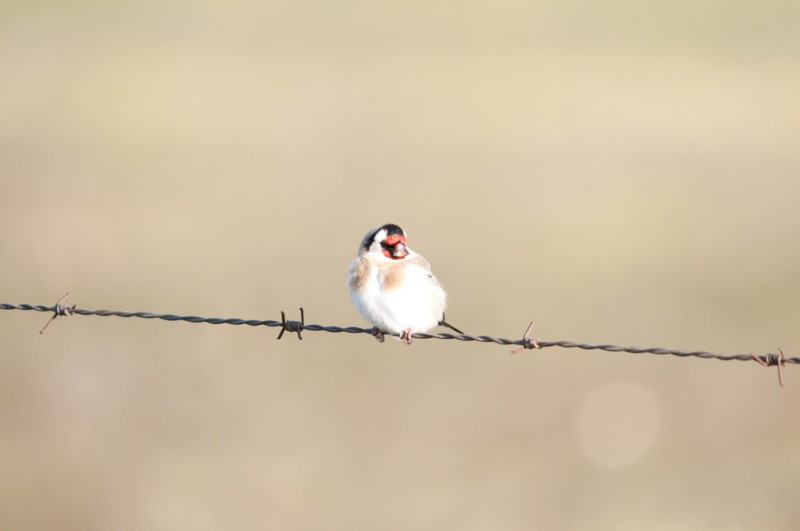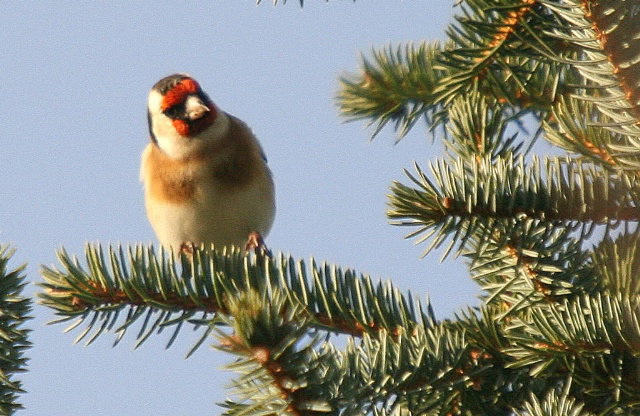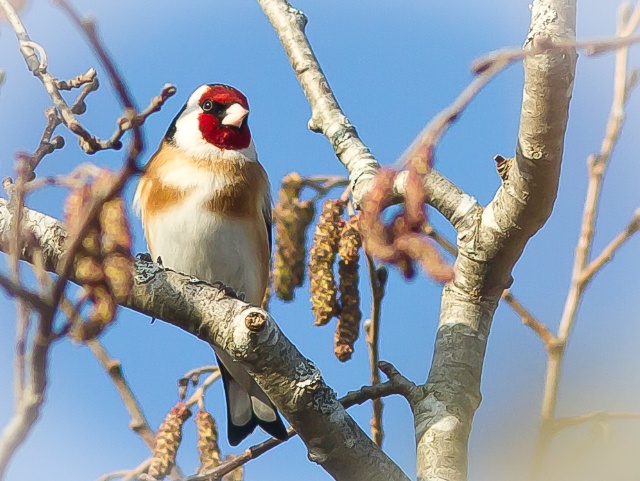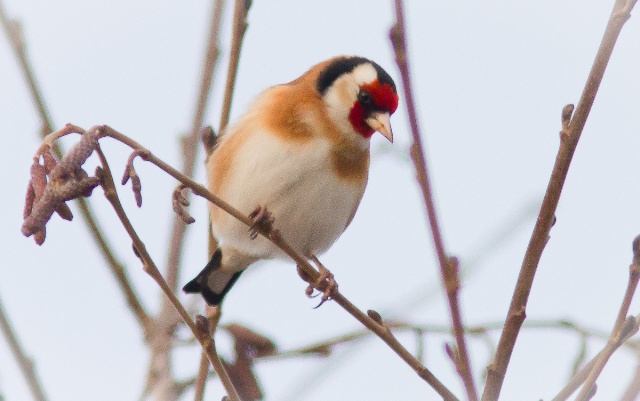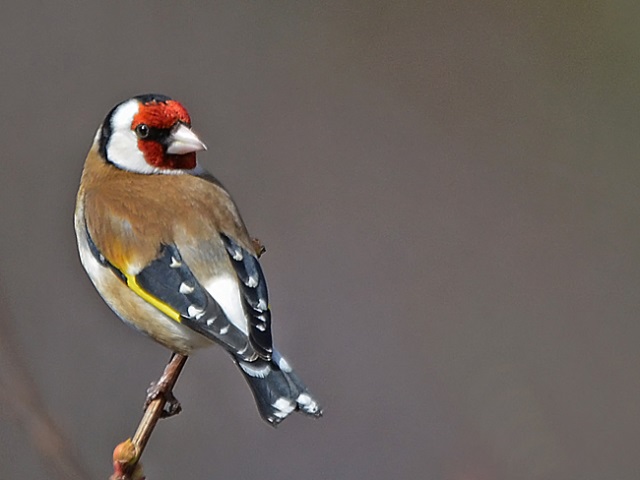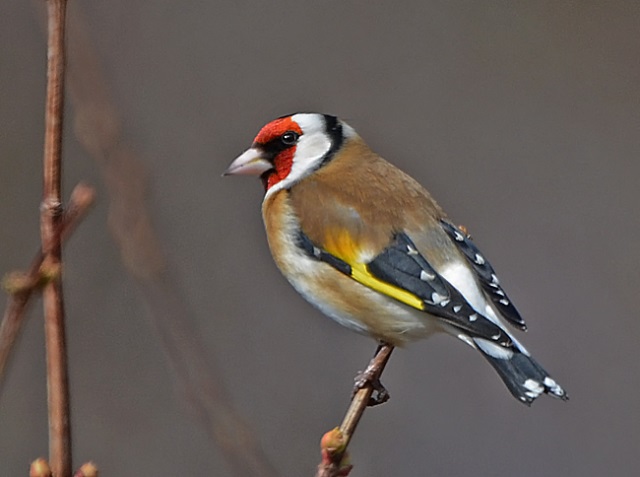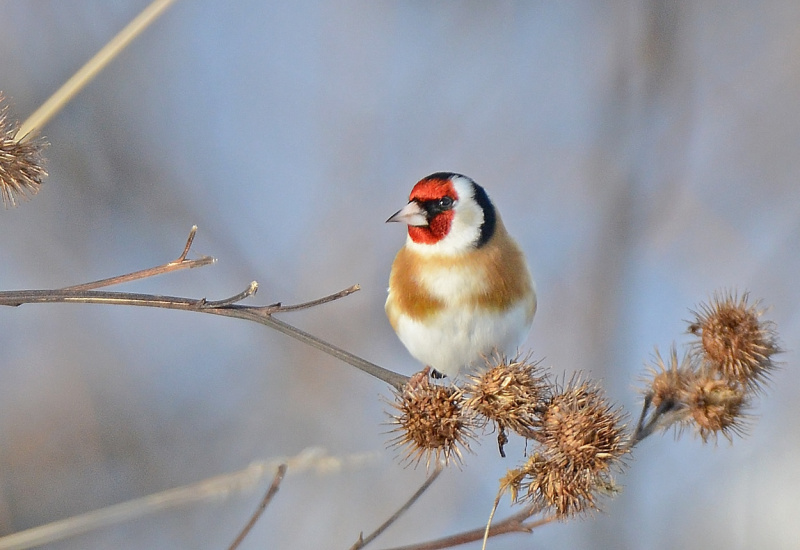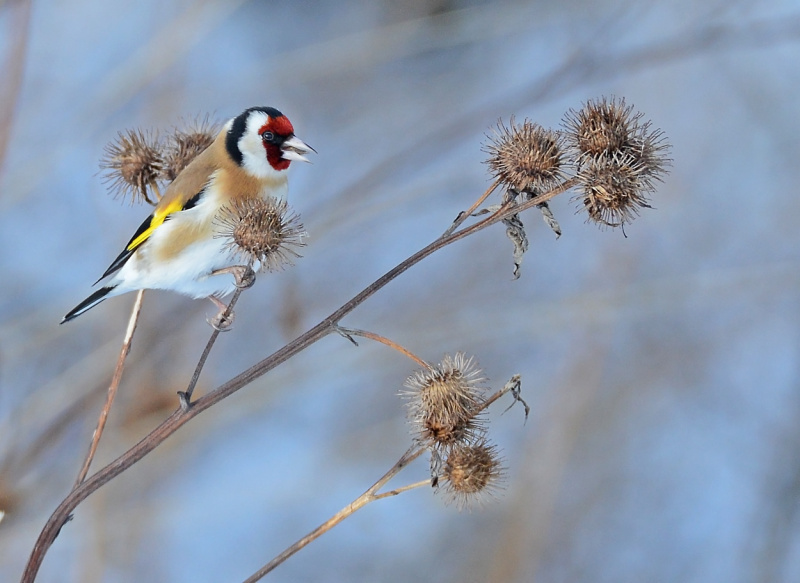Mistle Thrush (Turdus viscivorus)
Goldfinch (Carduelis carduelis)
A large, and often shy, thrush. Most similar to Song Thrush. Other than size, it is distinguished by a long tail with white corners, white under wing-coverts and a pale, vertical cheek patch. Underparts are boldly covered in round (not arrow-shaped) spots that forms a dark patch on each side of upper chest. Rump slightly paler than the olive back. Noticeably bulkier than Fieldfare, with a heavier bill. Posture upright when foraging on ground, and head seems paler than the back. Flight non-undulating, but with alternating bursts of wing-beats and glides with folded wings. Often flies high.
Sound:Song loud, far reaching and melodic. Most similar to Blackbird, but pitch is higher, phrases shorter (3-6 notes) and most notably, pauses between phrases are much shorter. All which gives the song a much more hurried feel than that of the Blackbird. Timbre is thinner and slightly shivering, and tonal range more limited. May have recurring favourite motifs, but does not repeat phrases like Song Thrush. Sometimes adds higher pitched parts and imitations. Other calls; a dry rattle, likened to the sound of a piece of wood drawn over a coarse comb, and a Fieldfare-like "chuck".
Song:
Distribution:
Wikipedia: map (se also Xeno-canto below)
Ecology:Birdlife ecology
Links:
Observation.org Latest observations
Image search Flickr NB! May give other species
CCPlumage stunningly colourful. Adults easily recognized by red face boldly framed in black and white. In all plumages; black wings with broad yellow panels, forked tail with white patches, and flashing white rump. Bill fairly long and pointed. Juveniles lack the red, black and white head, and are best identified by the contrasting wing-panel and white rump/tail patches. Light and bouncing flight, with bursts of wing-beats and variable acceleration.
Sound:Contact-call distinct, and also constitutes a major part of the song. A sharp and explosive "witt", or "tzee-witt". Sometimes given as a single syllable, di- or trisyllabic, or as continuous series. The song is comprised of rapid series of the contact call, interrupted by drawn-out melodic notes and trills. Other calls: A harsh budgerigar or house martin-like "trrrtt-trrrrt".
Song:
Distribution:
Xeno-canto: map
Ecology:Birdlife ecology
Links:
Observation.org Latest observations
Image search Flickr NB! May give other species
CCSounds:Recorded by Edmunds Racinskis

 English
English Albanian
Albanian
 Armenian
Armenian
 Bulgarian
Bulgarian
 Catalan
Catalan
 Croatian
Croatian
 Czech
Czech
 Danish
Danish
 Dutch
Dutch
 Finnish
Finnish
 French
French
 Georgian
Georgian
 German
German
 Greek
Greek
 Hungarian
Hungarian
 Italian
Italian
 Latvian
Latvian
 Lithuanian
Lithuanian
 Macedonian
Macedonian
 Norwegian
Norwegian
 Polish
Polish
 Portuguese
Portuguese
 Romanian
Romanian
 Russian
Russian
 Sami : Lule sami
Sami : Lule sami
 Sami : North sami
Sami : North sami
 Sami : South sami
Sami : South sami
 Scientific names
Scientific names
 Serbian
Serbian
 Spanish
Spanish
 Swedish
Swedish
 Ukrainian
Ukrainian


